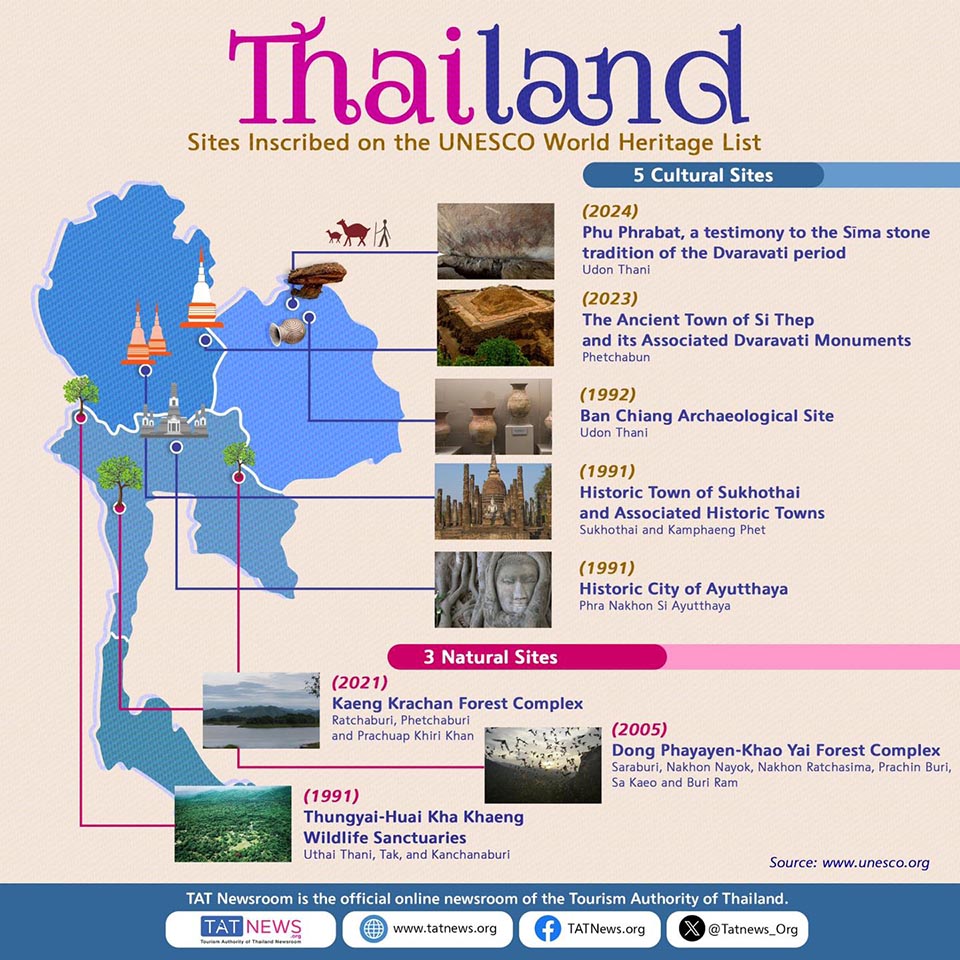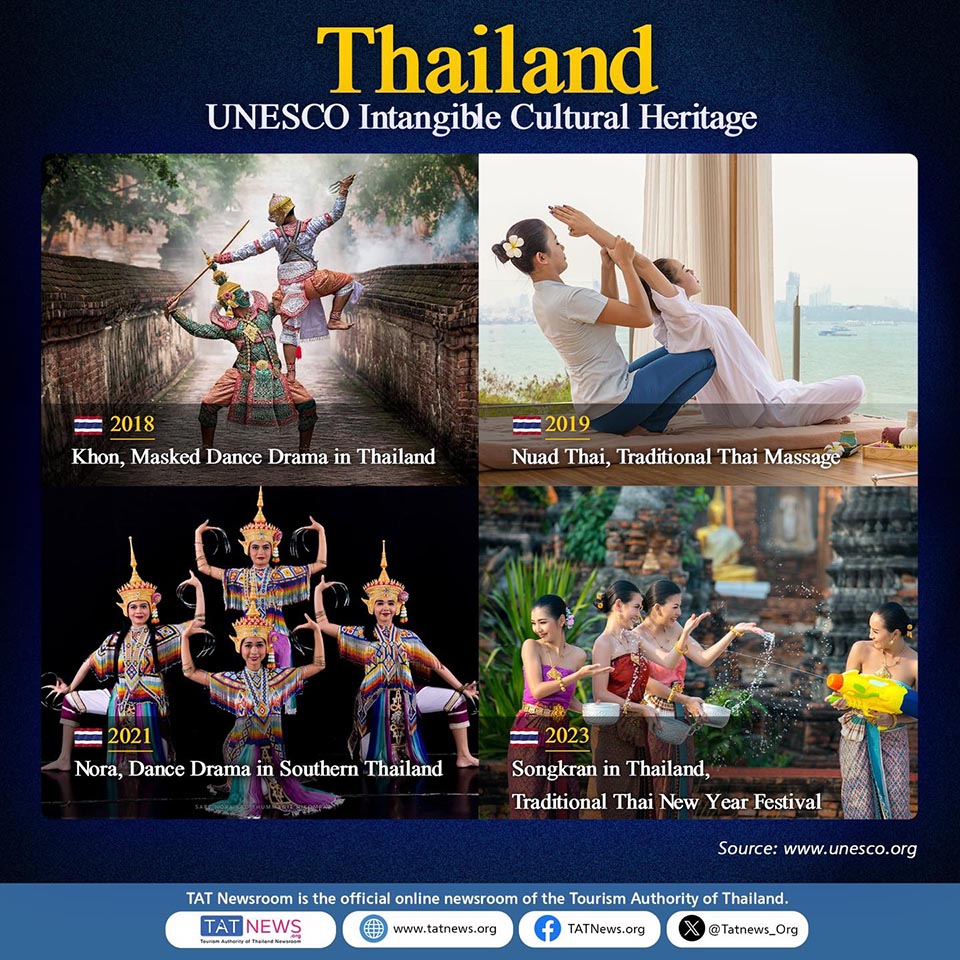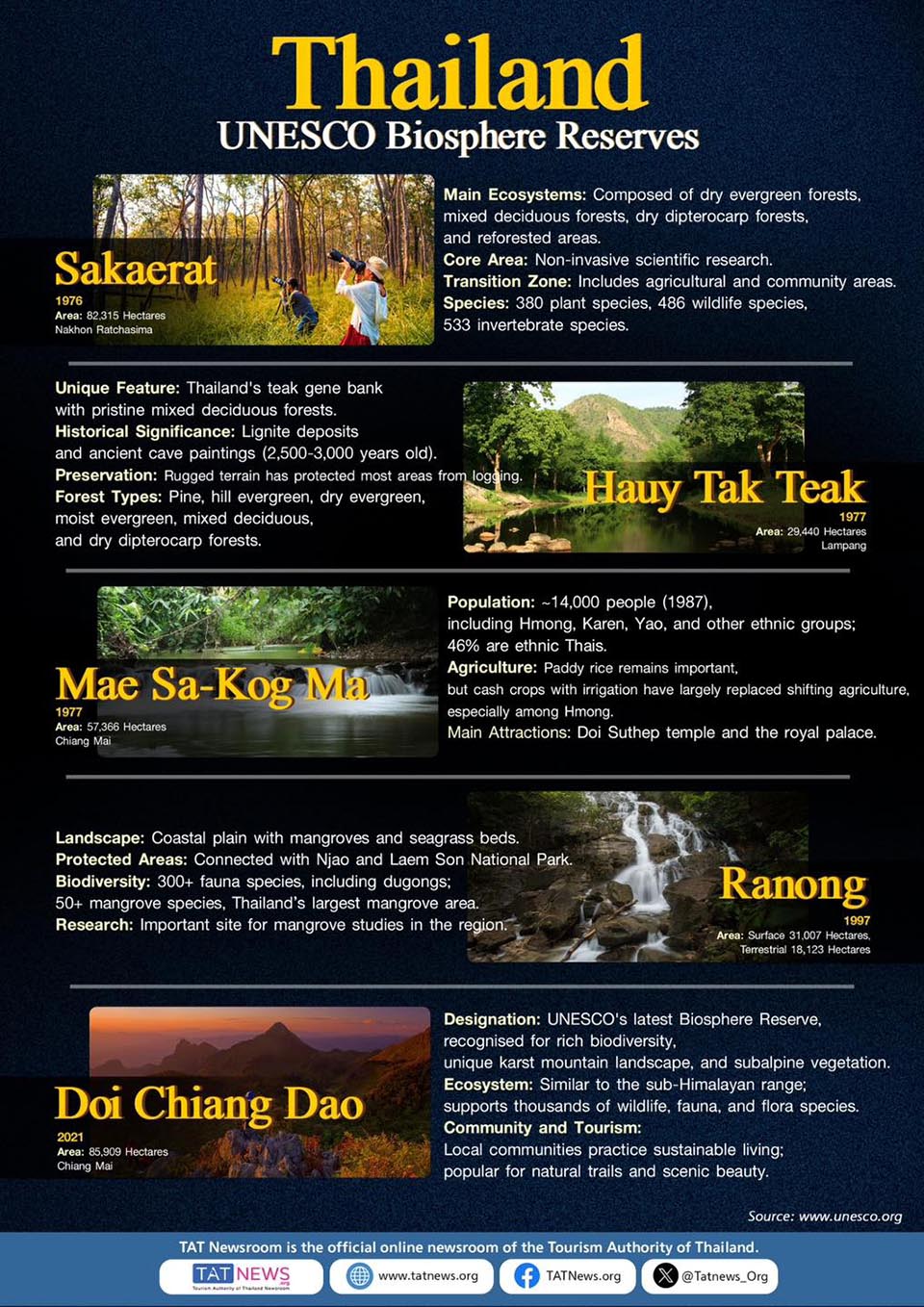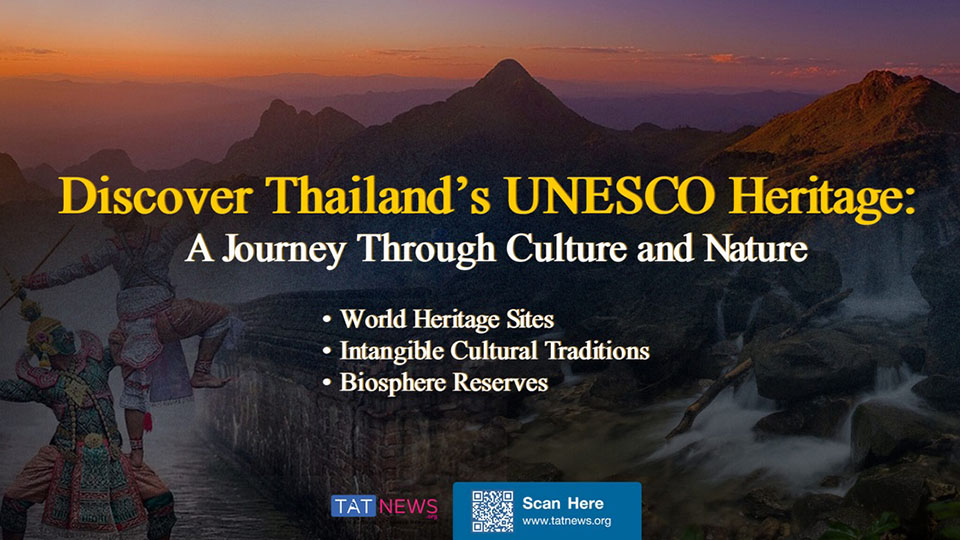
BANGKOK, Thailand – Thailand, renowned for its rich cultural tapestry and breathtaking natural landscapes, proudly hosts several UNESCO-recognised sites that offer travellers a profound glimpse into its heritage. These include eight World Heritage Sites, four elements of Intangible Cultural Heritage, and five Biosphere Reserves, each providing unique experiences for the discerning visitor.
UNESCO World Heritage Sites in Thailand
Historic Town of Sukhothai and Associated Historic Towns (1991): Considered the birthplace of Thai civilisation, Sukhothai offers immaculately preserved ruins showcasing the early development of Thai art, architecture, and culture. A visit here is a journey into the 13th-century Kingdom of Siam.
Historic City of Ayutthaya (1991): Once the flourishing capital of the Kingdom of Siam, Ayutthaya’s ruins, including grand temples and palaces, narrate tales of a bygone era.
Thungyai-Huai Kha Khaeng Wildlife Sanctuaries (1991): These vast sanctuaries house some of Southeast Asia’s most diverse ecosystems, including endangered species such as tigers and elephants. The area is a haven for conservationists and eco-travellers.
Ban Chiang Archaeological Site (1992): Recognised as one of Southeast Asia’s most significant prehistoric settlements, Ban Chiang provides insights into early human civilisation through its artefacts and pottery.

Dong Phayayen-Khao Yai Forest Complex (2005): Known for its stunning landscapes, waterfalls, and rich biodiversity, this forest complex is a hotspot for nature lovers and offers thrilling opportunities for hiking and wildlife viewing.
Kaeng Krachan Forest Complex (2021): As Thailand’s largest national park, Kaeng Krachan’s mist-shrouded mountains and diverse wildlife make it a prime destination for birdwatching and nature exploration.
The Ancient Town of Si Thep and its Associated Dvaravati Monuments (2023): Si Thep illuminates the Dvaravati period with its ancient structures and artefacts, offering a rich archaeological experience.
Phu Phrabat Historical Park (2024): Designated in July 2024, this site in Udon Thani province features unique rock formations, prehistoric art, and sacred sites, blending natural wonders with cultural heritage.
Intangible Cultural Heritage
Khon, Masked Dance Drama in Thailand (2018): This traditional Thai performance art combines dance, music, and elaborate costumes to depict stories from the Ramakien, Thailand’s epic tale.
Nuad Thai, Traditional Thai Massage (2019): More than a therapeutic practice, Nuad Thai is a cultural art form that embodies Thailand’s holistic approach to health and well-being.
Nora, Dance Drama in Southern Thailand (2021): Originating in Thailand’s southern region, Nora captivates audiences with its graceful movements, dynamic storytelling, and colourful costumes.
Songkran in Thailand, Traditional Thai New Year Festival (2023): Celebrated in mid-April, Songkran is marked by water festivities symbolising purification and the washing away of sins, offering a joyful cultural experience for visitors.

Biosphere Reserves
Sakaerat Biosphere Reserve (1976): Located in Nakhon Ratchasima province, this reserve focuses on sustainable development and conservation, with its dry evergreen forests serving as a research hub.
Mae Sa-Kog Ma Biosphere Reserve (1977): Situated in Chiang Mai, this reserve is known for its montane forests and serves as an example of harmonious living between ethnic communities and nature.
Huai Tak Teak Biosphere Reserve (1977): Known for its extensive teak forests, this reserve in Lampang province highlights sustainable forestry practices and ecological preservation.
Ranong Biosphere Reserve (1997): Encompassing mangrove forests and coastal ecosystems, and insights into marine biodiversity.
Doi Chiang Dao Biosphere Reserve (2021): Situated in Chiang Mai, Doi Chiang Dao features spectacular limestone peaks and diverse ecosystems, attracting adventurers and researchers alike.
Exploring these UNESCO-designated sites allows travellers to immerse themselves in Thailand’s rich cultural narratives and natural splendours, ensuring a journey that is both enlightening and unforgettable. (TAT)











